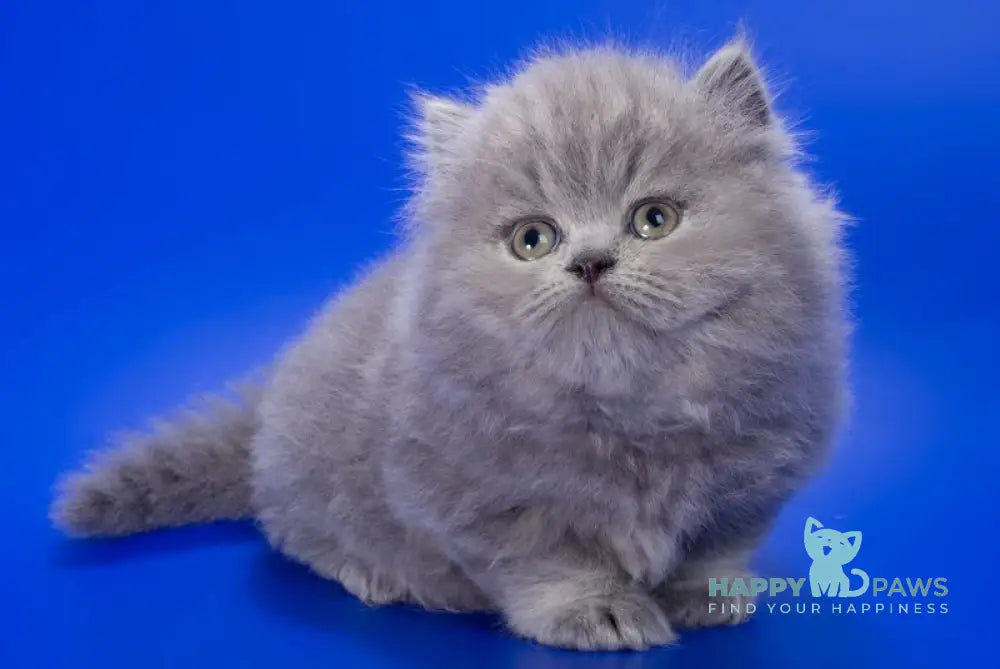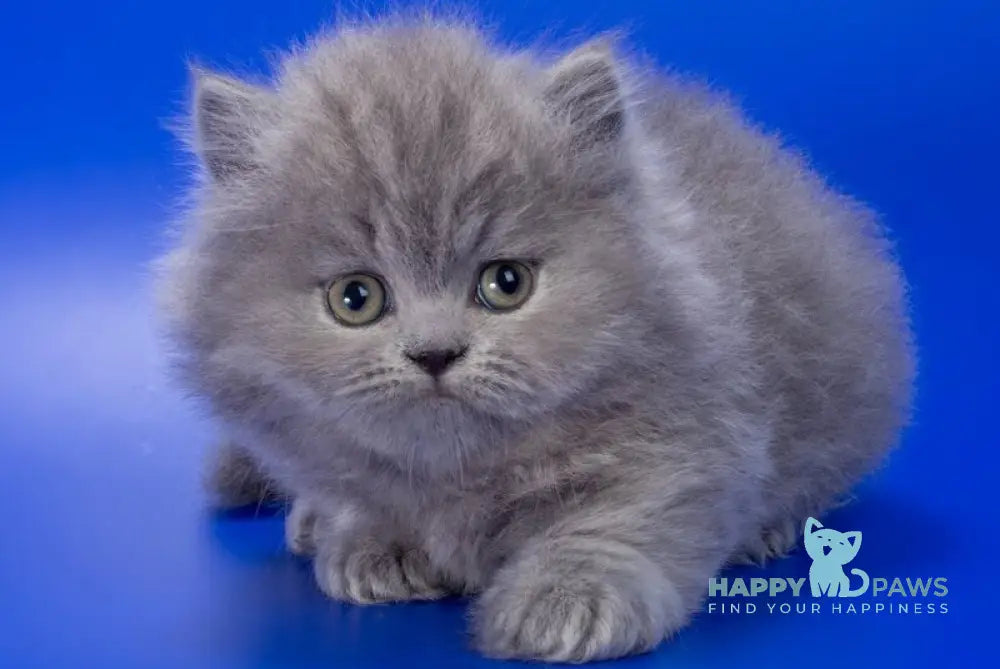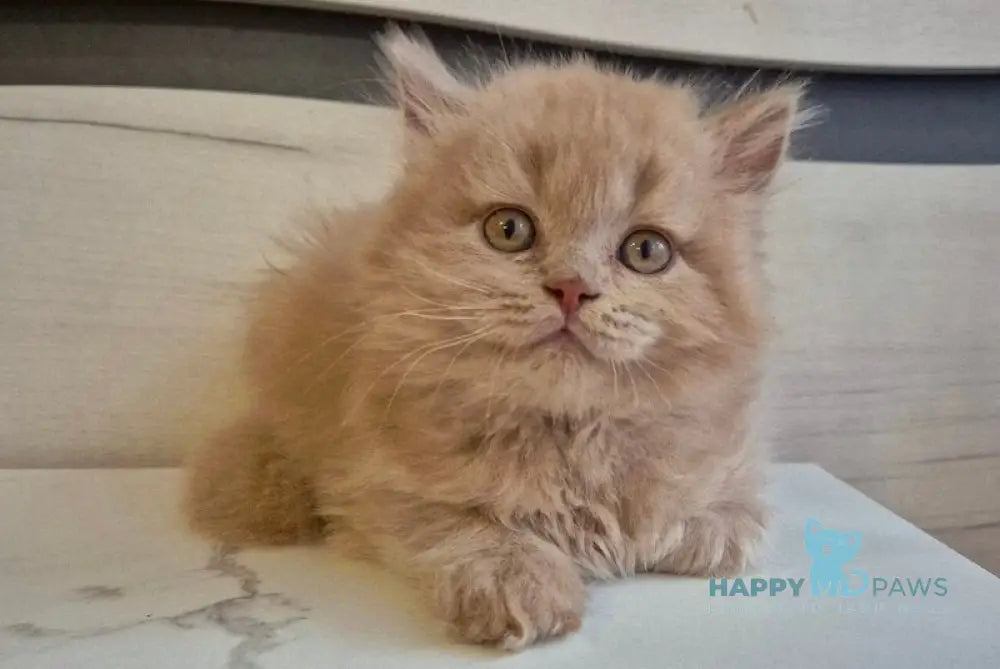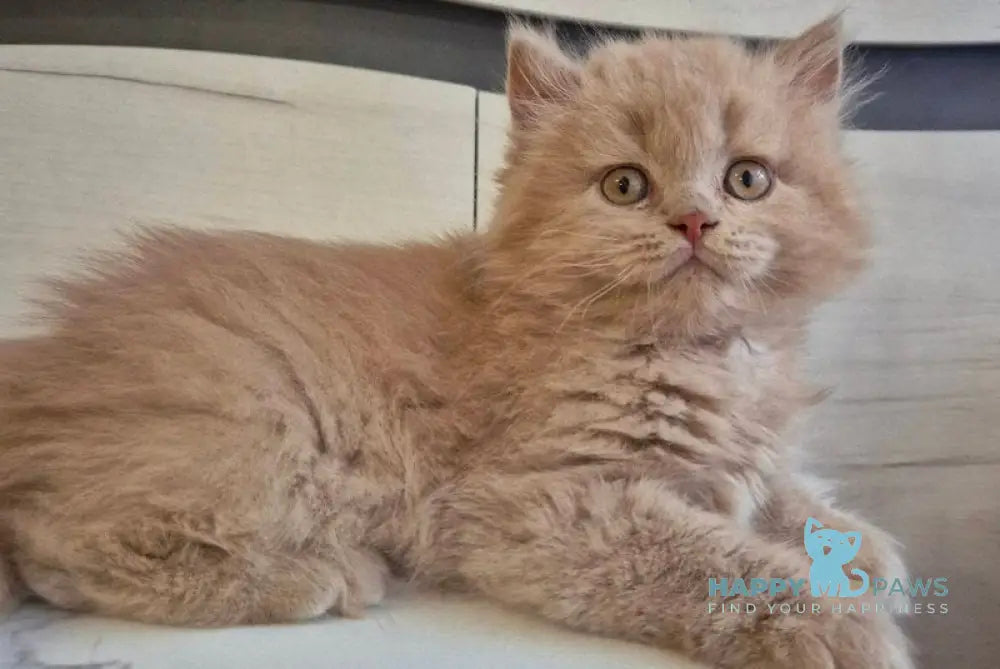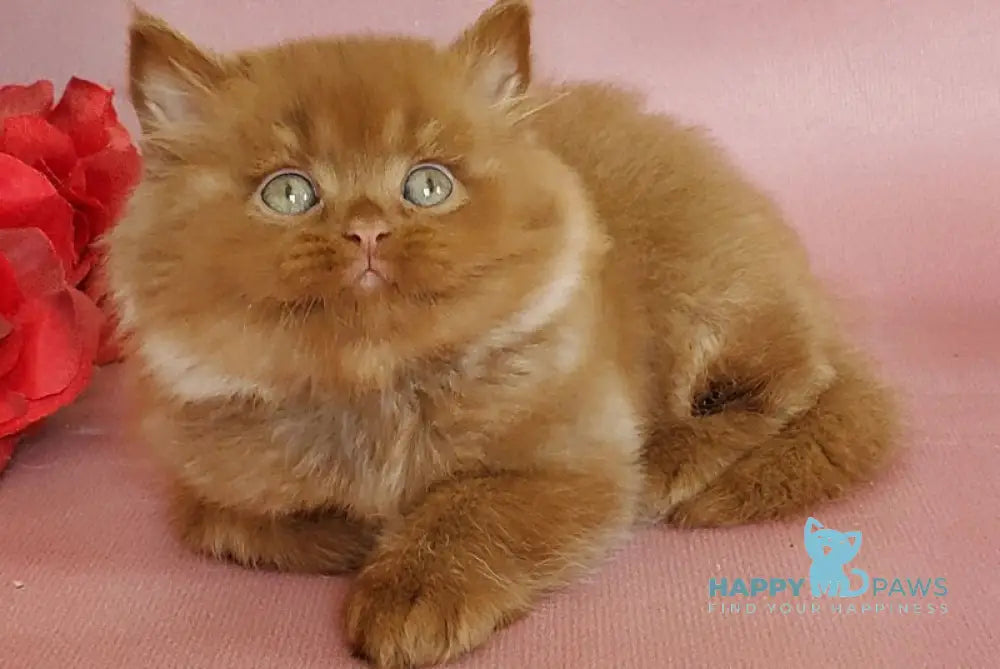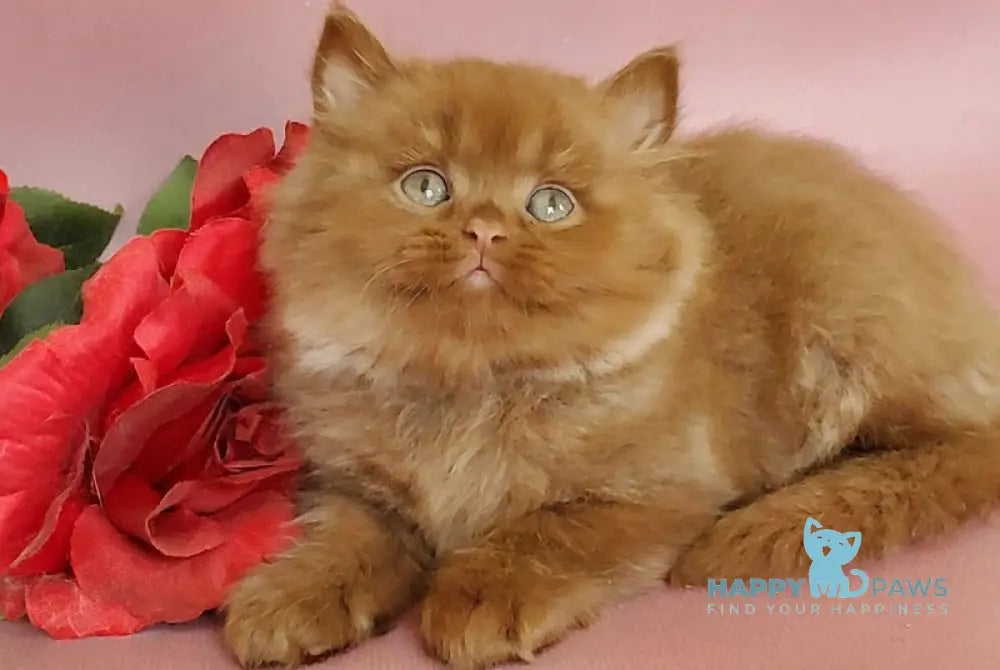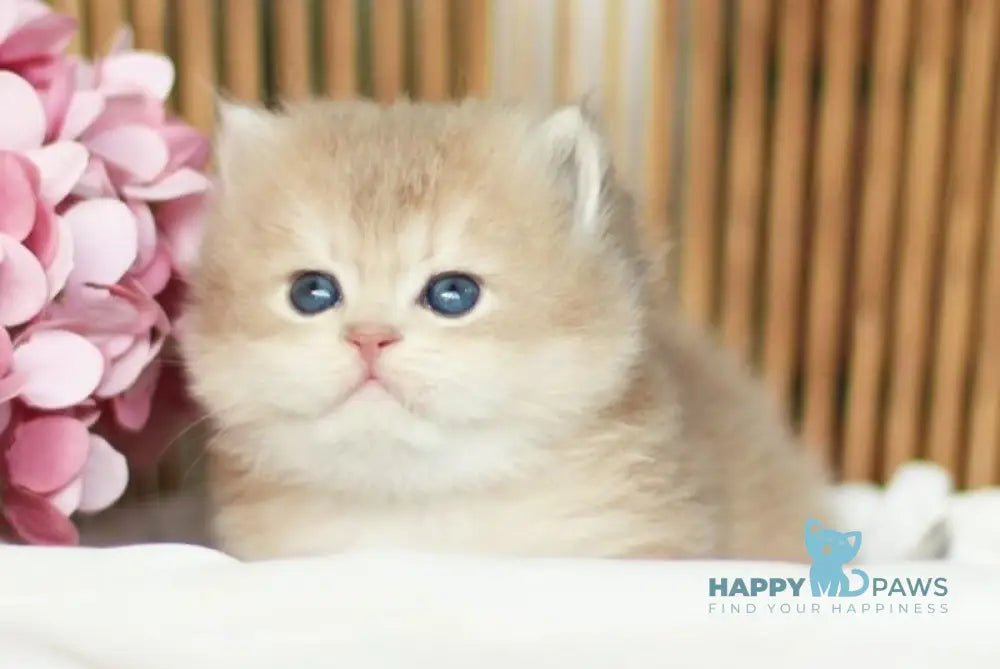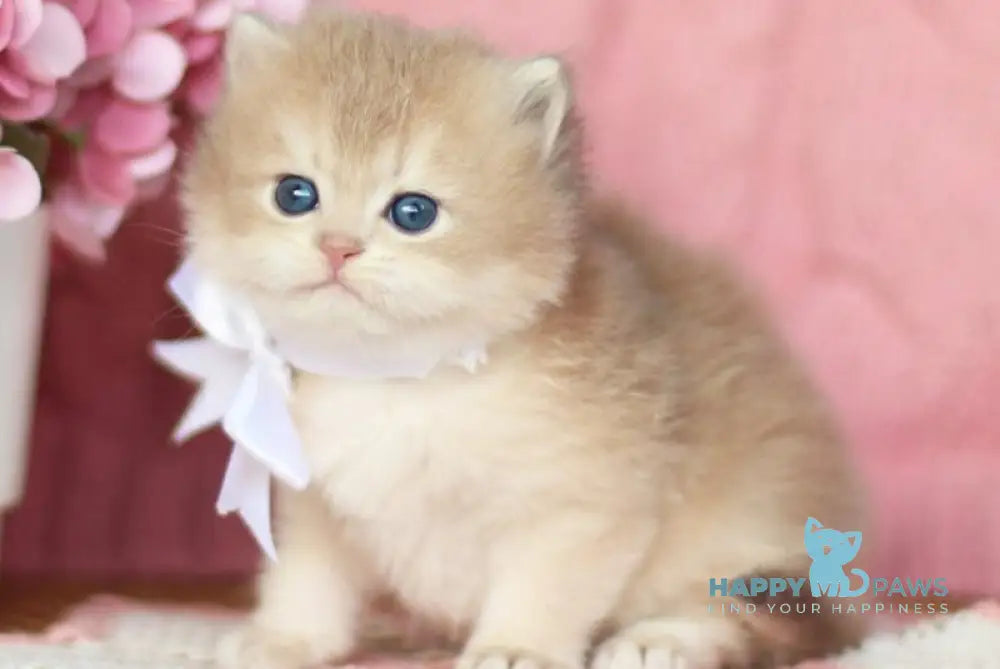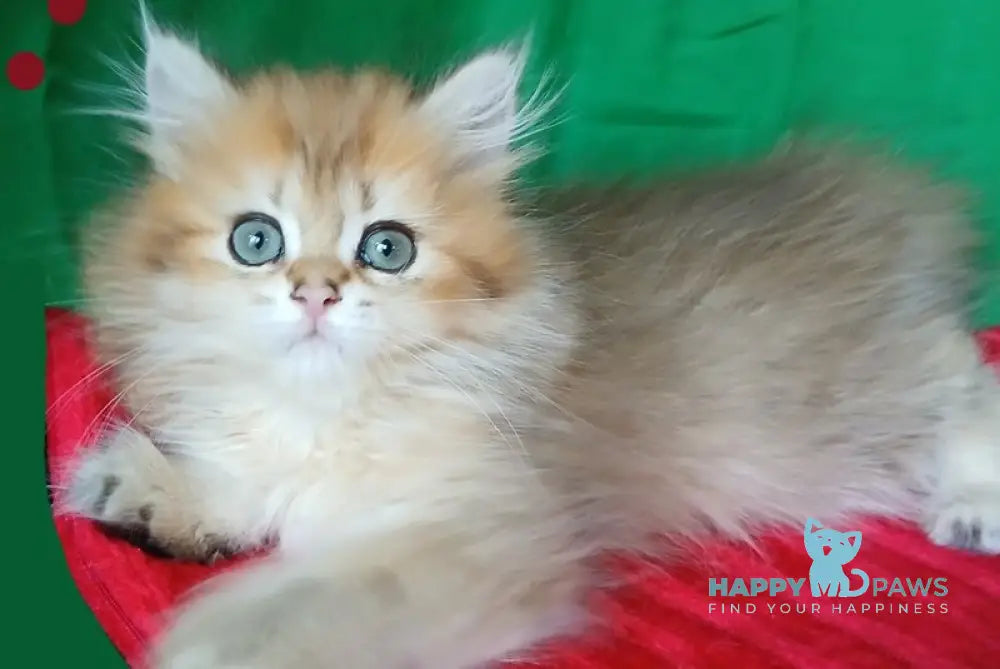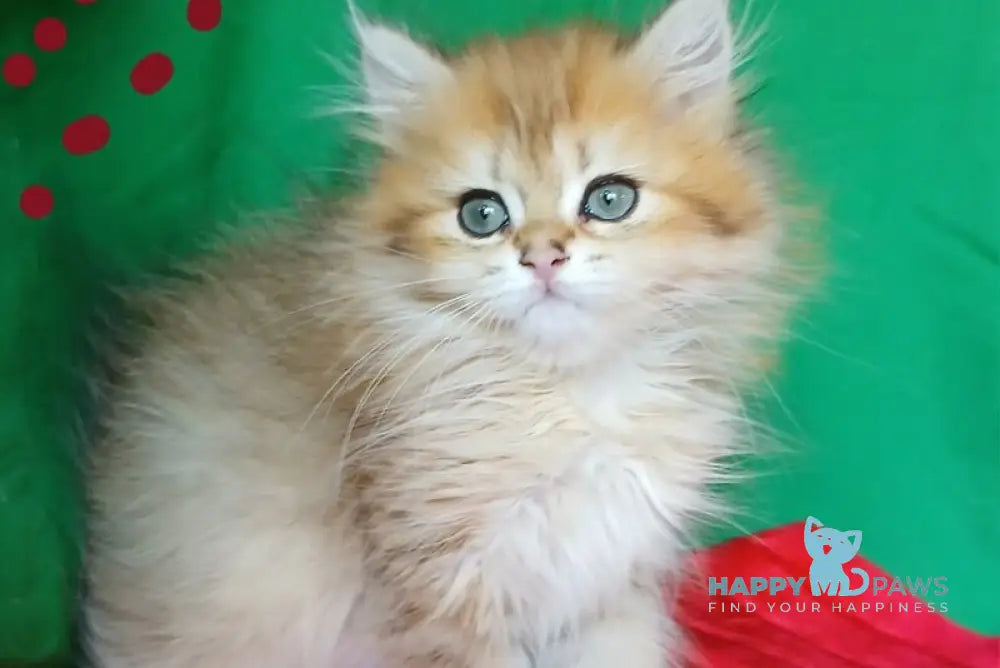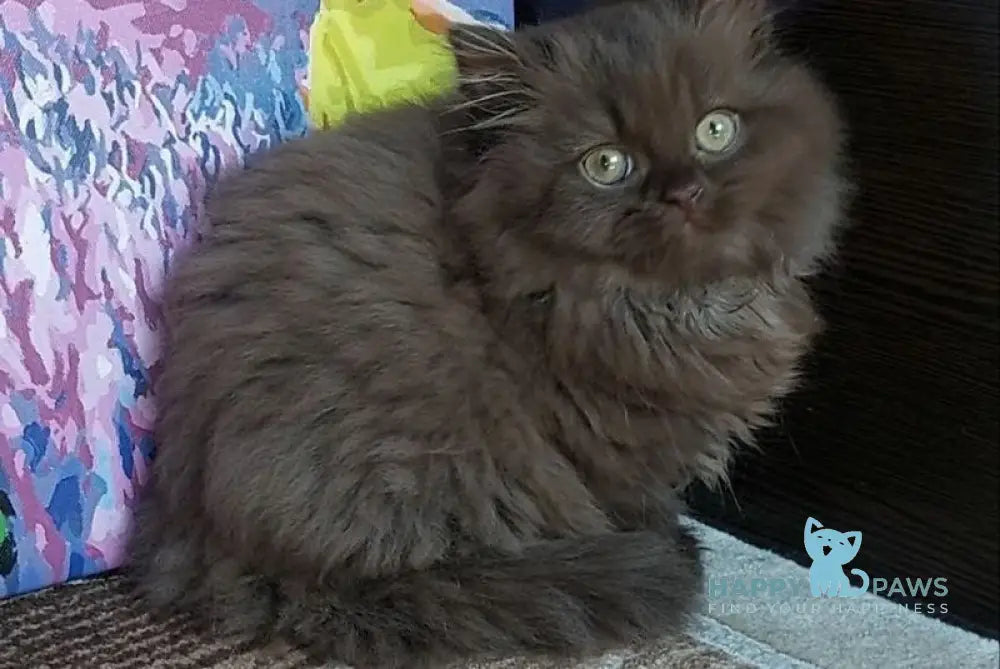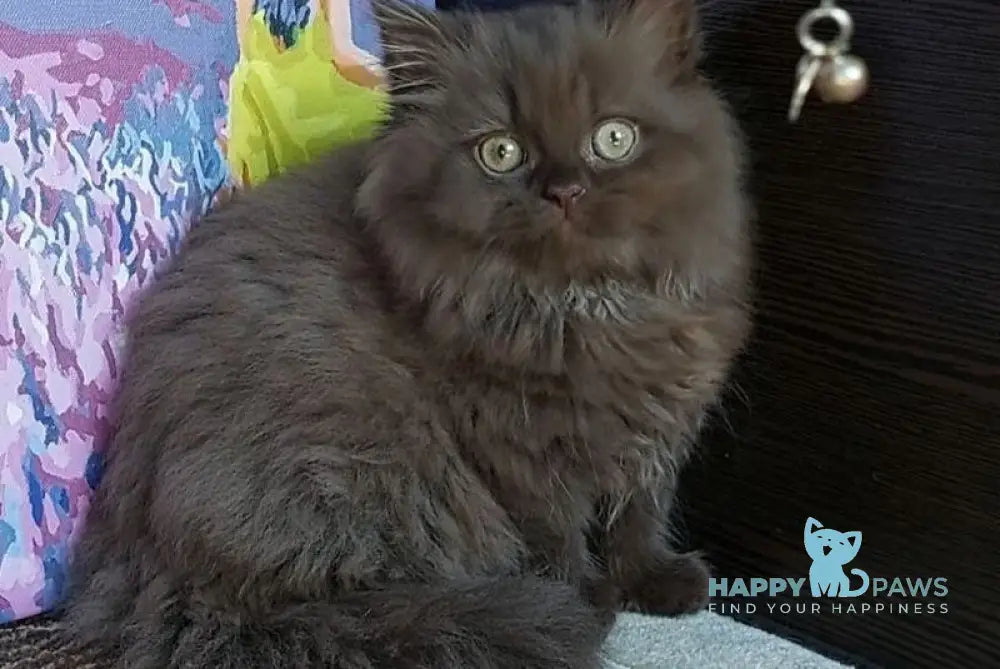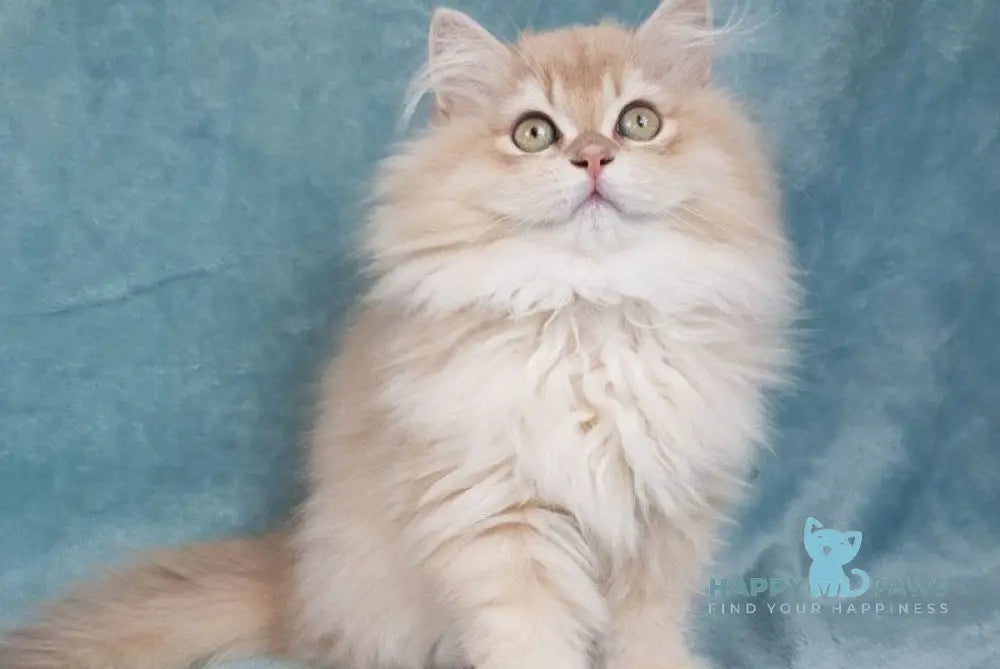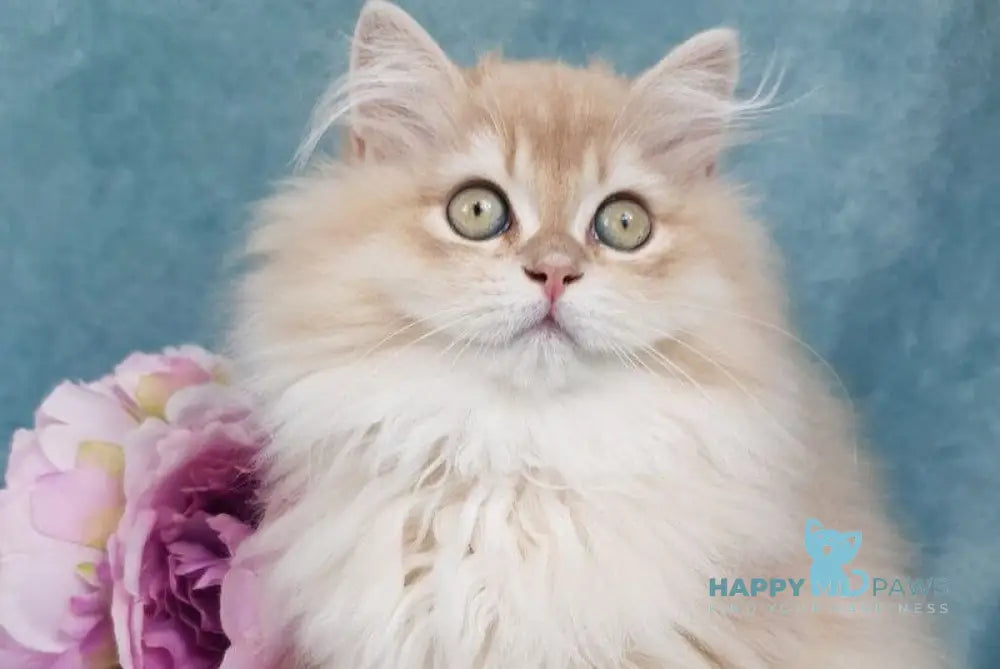Collections
-
- Abyssinian
- Balinese
- Bambino
- Bengal
- British Shorthair
- British Longhair
- Burmese
- Cornish Rex
- Chausie
- Devon Rex
- Egyptian Mau
- Elf
- Exotic
- Kurilian Bobtail
- Lykoi
- Maine Coon
- Munchkin
- Oriental Shorthair
- Persian
- Ragdoll
- Russian Blue
- Savannah
- Scottish Fold
- Scottish Straight
- Selkirk Rex
- Siamese
- Siberian
- Somali
- Sphynx
- Toyger

British Longhair
78 products
Showing 1 - 24 of 78 products
British Longhair Collection: Products for This Breed
Medium-sized British Longhair cats have long hair and a round, amiable face. This breed has an endearing charm because of their big round eyes, charming faces, and soft coats. These cats have strong, muscular bodies beneath all of their fluffy fur. Male British Longhairs normally weigh more than females, which range from 8 to 16 pounds.
The dense, straight coats of British Longhair cats stick out from the body, giving the impression that they are larger than they actually are. They might be black, lilac, chocolate, or golden, and their coats are thick and velvety. Their patterns might be colorpoint, ticking, or bi-color. Despite having a thick undercoat, British Longhair cats shed less than other longhaired breeds.
These cats have an independent streak and frequently feel comfortable doing their own thing, despite their high level of social interaction. This is not to imply that these cats will never bother you; in fact, they have been called miniature "private investigators." These cats are quite inquisitive, just like the cats of popular culture. Don't be shocked if you notice these cats browsing through your personal belongings or watching you from a distance to figure out what you're doing.
Why Choose a British Longhair
British Longhairs enjoy being around people, especially their owners, and are highly gregarious. They enjoy toys by themselves and having fun when their owner isn't there, but they also adore cuddling and sleeping for long periods of time. View additional information on the main cohesive features:
- Low-Energy: British Longhairs are perfect for apartment living or families with a more relaxed lifestyle because, in contrast to high-energy breeds, they love to lounge around the house. You won't have to worry as much about them making mayhem in your house because of their easygoing disposition.
- Good Health: When given the right coat care, British Longhair cats can live for 12 to 16 years or longer. Because of their longevity and excellent health, you will have a furry friend who will enrich your life for many years to come.
- Low-Maintenance Personality: British Longhairs are low-maintenance pets, although their fur needs to be regularly brushed to avoid tangles. Although they can amuse themselves on their own, they will gladly interact with you when you are present.
- Excellent with Other Pets: They can adapt to a variety of living settings because of their kind and understanding nature. They can live in harmony in your home with other cats or dogs and are kind to children.
The personalities of male and female British Longhair cats are slightly different. While the more serious females are classic British ladies who want perfect form and etiquette from those they accept, the jovial guys command respect yet enjoy attention from everyone.
Key Stages of Development
What is the lifespan of British Longhairs? British Longhairs usually live between 12 and 17 years if given the right coat care. View the significant turning points in the age development of British Longhairs:
Kittenhood (0-6 months)
British Longhair kittens are lively and inquisitive at this age. They are gaining social skills and knowledge of their environment. They may be more likely to chew and explore during this period, so patience and constant teaching are needed to help them through their early stages.
Adolescence (6 months - 2 years)
British Longhair cats may get more self-reliant and investigate their surroundings as they get older. Even with their placid nature, they nevertheless need a lot of activity and mental stimulation to keep them from getting bored and to support their ongoing growth. Bonding is crucial during this phase because they could be a little more distant.
Adulthood (2 - 7 years)
British Longhair cats grow up to be loving, peaceful, and flexible. They usually love activities like interactive toys and window-lounging during this time, when their physical and mental capacities are at their highest. Regular longhair grooming is necessary for their medium-to-long coat, but they usually don't mind their regimens.
Seniority (7+ years)
British Longhair cats may slow down and exhibit aging symptoms as they get older, like less energy and possibly stiff joints. For them to retain a high quality of life in their latter years, age-appropriate activity, healthy diet, and routine veterinarian examinations are essential.
Note: Although differences in coat color or texture have little bearing on how long British Longhair cats live, careful breeding, a healthy diet, frequent exercise, and access to brushing tools are essential for preserving general health and longevity.
Health and Socialization
Every kitten goes through a rigorous health regimen that includes regular veterinary checkups, deworming, and core vaccines. Preventive care builds a strong basis for long-term wellness and guarantees immunity against common feline diseases. The medical history of every kitten is recorded, giving potential adopters clarity and comfort. The following are important facets of your British Longhair's socialization:
- Early exposure: Ideally, your kitten should be socialized between the ages of 8 and 12 weeks. To help them gain confidence, expose them to a variety of people, animals, sounds, and settings.
- To help your British Longhair develop appropriate social behaviors in a secure setting, sign them up for kitten socialization lessons.
- Frequent socialization: promote your cat's confidence and social abilities by exposing them to people, other kittens, and new situations on a frequent basis.
- Positive reinforcement: throughout socialization and training sessions, utilize prizes, treats, and praise to promote positive behavior.
Kittens are exposed to supervised interactions with people, domestic settings, and perhaps other pets from a young age. The kittens become more adaptable and less fear-based, which increases their receptivity to bonding and training. A companion animal with a steady temperament, stress tolerance, and improved assimilation into new homes is the end result.
Adoption Process
Looking over the available kittens in the catalog, which contains information on breed, age, gender, and temperament, is the first step in the HappyPaws adoption process. Following the selection of a suitable kitten, potential owners can secure the kitten until pickup or delivery by completing an application and deposit. A professional veterinarian's health check, a convenient pickup or transfer time, and further advice from us to guarantee a seamless transition into the new home are the last steps.
Depending on the pedigree, the initial cost of buying a British Longhair kitten can vary from $800 to $1,200. It usually costs between $1,840 to $4,030 for the first year of ownership, which includes fees for British Longhair supplies, food, medical care, and grooming. Regular needs like food, litter, and care can be covered by ongoing annual fees that can range from $710 to $2,865.
Pick-Up and Delivery Options
HappyPaws provides adaptable adoption procedures to accommodate various families' requirements. Both choices are intended to guarantee a seamless transition into your house, whether you would rather arrange for a safe delivery or pick up your kitten in person.
Local pick-up:
- Allows adopters to meet their kitten in a familiar, controlled environment.
- Minimizes travel stress by reducing transport time.
- Provides an opportunity to interact with staff and ask final coat care questions.
Scheduled delivery:
- Professional transport services with secure carriers and temperature regulation.
- Continuous monitoring to ensure the kitten’s safety and comfort.
- Convenient for adopters unable to travel for pick-up.
The kitten's welfare is given first consideration in the design of both choices, guaranteeing their safety, comfort, and least amount of stress throughout the transfer. Families may now confidently and peacefully concentrate on welcoming their new companion thanks to this dedication.
Feeding and Care Guidance
A British Longhair's health and opulent coat depend heavily on eating a well-balanced, premium diet. Seek out British Longhair food that is:
- Rich in high-quality animal sources of protein
- Moderate amount of fat
- Minimal in carbs
To achieve proper hydration, which is particularly crucial for urinary tract health, think about giving a combination of wet and dry meals. Because of their easygoing disposition, this breed frequently suffers from obesity, which may be avoided with proper portion control.
Breed-specific food designed for coat health that contain omega-3 and omega-6 fatty acids may be beneficial for certain British Longhairs. For individualized dietary recommendations depending on your cat's age, weight, and overall health, always speak with your veterinarian.
Grooming Basics
Regular longhair grooming is necessary to preserve the smooth, semi-long coat of British Longhair cats healthy and tangle-free. The following advice will help you keep your British Longhair cat looking its best:
- Brushing: To avoid matting and tangling, brush your cat's coat at least three times every week. Their thick, velvety coat is best managed with a comb or slicker brush.
- Bathing: Although British Longhair cats don't need to be bathed often, you can give them one every few months to keep them clean, particularly if they like getting muddy.
- To avoid snagging or overgrowth, clip your cat's nails on a regular basis. For a neat cut, use nail clippers made specifically for cats.
- To avoid plaque accumulation, give your cat's teeth a frequent brushing. Giving them dental British Longhair cat accessories or snacks can also help them maintain healthy teeth.
You can preserve your British Longhair cat's health and appearance by following these grooming guidelines.
Summary
A dependable option for both families and individuals, the British Longhair breed combines longevity, flexibility, and a friendly nature. Every kitten at HappyPaws goes through a rigorous vaccination schedule, veterinarian examination, and planned socialization to guarantee the best possible health and behavioral preparedness. Adopting with HappyPaws guarantees a seamless transfer backed by expert coat care standards in addition to a healthy companion.
Take a look at our available British Longhair kittens now to start the process of bringing a lifetime friend into your house.
FAQ
What makes British Longhair unique?
British Longhairs have a characteristic, regal look due to their wide faces, big expressive eyes, and thick, soft coats. Their peaceful, loving, and flexible dispositions make them the perfect companions for houses with several pets, families, and single people. They differ from more active or talkative breeds due to their mild disposition and generally low-maintenance demeanor.
How do you groom a British Longhair properly?
Brushing frequently, ideally a few times a week, is crucial to preventing matting and minimizing hairballs. Use a slicker brush or comb made for cats with long hair, paying special attention to tangle-prone regions like behind the ears and underarms. Cats may maintain a healthy, glossy coat with regular bathing, cat-safe shampoo, and meticulous hair clipping.
What is the best food for British Longhair cats?
A high-protein, animal-based diet is ideal for British Longhairs in order to preserve their general health and muscle strength. When consumed in moderation, dry British Longhair food can improve dental health, while wet breed-specific food aids in hydration and urinary tract support. Steer clear of artificial additions, fillers, and inferior ingredients, and modify serving sizes according to weight, age, and activity level.
How to care for British Longhair cats daily?
To promote health and hygiene, provide a clean litter box, fresh water, and balanced meals each day. To satisfy their physical and mental requirements, provide fun, frequent longhair grooming, and environmental enrichment. To guarantee their long-term health, keep an eye on their weight, coat, and behavior and arrange for regular veterinary examinations.
